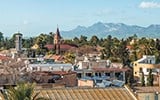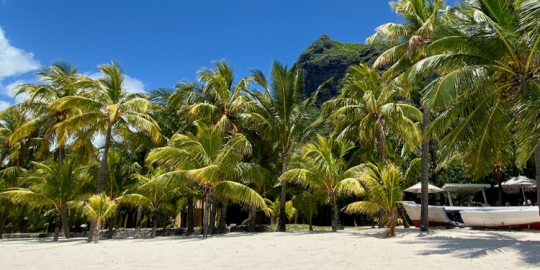Opening a bank account is one of the first things you'll need to do in Cyprus. Thankfully, the banking system in Cyprus is ...
Living in Cyprus guide for expats
All the information you need to relocate and live in Cyprus.
Our selection of articles for expatriation in Cyprus
If you are thinking of moving to Cyprus, then understanding how the healthcare system works, and if you are entitled to ...
Cyprus is becoming an increasingly popular market for expats. People migrate to this Mediterranean island for its terrific ...
With a population of 1.19 million, Cyprus is the third most densely populated island in the Mediterranean. Particularly in the ...
With a population of 200,452 people, the capital city of Nicosia is the most densely populated in Cyprus. Dubbed the worlds last ...
Are you thinking of investing in property in Cyprus? You are definitely not alone. The interest for real estate in Cyprus is very ...
Dubbed the last divided capital city of Europe, Nicosia has a long and rich history as well as a vibrant present. Cyprus capital ...
Every year, Cyprus attracts many expats looking to start their venture. The reasons for that are many: from the fact that the ...
The complexity of staying long-term in Cyprus (for more than 90 days) varies greatly depending on your nationality. As the ...
One of the reasons an increasing amount of expats chooses Cyprus for their new home is the relaxed pace of living compared to ...
Nicosia has a distinct, dual character. On the one hand, the new city with its modern buildings, coffee shops and boutiques; on ...
Cypriot culture is very closely intertwined with Cypriot gastronomy. The Mediterranean view of food as an essential social ritual ...
If you consider the fact that the island has been inhabited since the Neolithic era, you understand that Cypriot culture cannot ...
Cyprus has been through a lot as a nation. Throughout the adversities, its people have developed bravery and stubbornness, a ...
As Cyprus is one of the safest countries in the world, you shouldn't have any worries about raising your kids here. Cypriots ...
About Cyprus
Although legend has it that this is the birthplace of Aphrodite, the Greek goddess of love, the island's modern history has sadly been dominated by enmity between its Greek and Turkish inhabitants.
In 1960, Britain granted independence to Cyprus under a power-sharing constitution between Turkish and Greek Cypriots. However, the island has been divided since 1974 after Turkey invaded the north in response to a military coup. Since then, Cyprus has been partitioned ' the northern third is inhabited by Turkish Cypriots, while Greek Cypriots live in the southern section. United Nations troops patrol what is referred to as the 'Green Line' that divides the two parts, and reunification talks are proceeding slowly.
Despite being divided, the whole of Cyprus is considered EU territory, which means that all Cypriots are EU citizens (even the Turkish Cypriots that live in northern Cyprus).
As a result of its two principal communities, the official languages in Cyprus are standard modern Greek and standard Turkish. Cypriot Greek, which has been heavily influenced by different colonial forces, is significantly different from standard modern Greek and is spoken south of the UN Green Line while Cypriot Turkish is used in everyday vernacular in the north. However, the good news for many expatriates is that English tends to be widely spoken across the island.
Greek Cypriot and Turkish Cypriot societies may be intrinsically different in their beliefs ' most Greek Cypriots are members of the Greek Orthodox Church, whereas most Turkish Cypriots are Sunni Muslim ' but they both have a rich history in common, with similar food and customs. Local cuisine on the island is heavily influenced by Turkish, Greek and Middle Eastern cultures, and meze is a feast of small dishes, including hummus, haloumi and afelia (pork cooked in red wine), that is enjoyed by most Cypriots.
The islanders also share ancient riches ' neolithic dwellings, Bronze Age and Phoenician tombs, mountain-top castles, and Byzantine churches are strewn across the landscape.
Its Mediterranean climate means that everyone, from families to adrenalin junkies, can enjoy what Cyprus has to offer. So, whether you're a young professional or a parent of three, there is sure to be something that will tickle your fancy.
Cyprus' calling card is arguably the wild beaches that circumvent the island. However, you may be surprised to learn that wildflower-studded meadows and valleys of dense vineyards can be found inland, and the island's pine-clad mountain spine offers hiking, biking and even winter skiing to those who prefer to be on terra firma.
In spite of some of its political foot-dragging, Cyprus has successfully diversified its economy from being one that was largely reliant on agriculture into one based on services. This includes a large tourism sector, and light manufacturing, which has created a plethora of opportunities for expats. In recent years, the island has also developed into an important financial hub, especially for investors from Russia and Eastern Europe, which is making it particularly attractive to expatriates in this sector too.
Latest housing offers in Cyprus
Latest job offers in Cyprus










